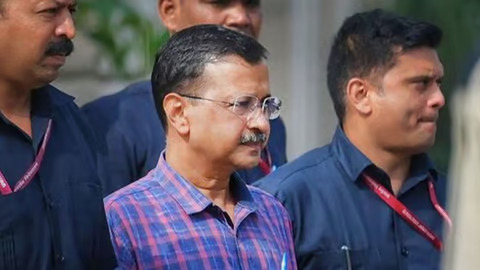Rehan Khan
On 13th September, the Supreme Court of India granted bail to Delhi Chief Minister Arvind Kejriwal in connection with a corruption case related to the Delhi Excise Policy of 2021-22. The case, which has been under investigation by both the Central Bureau of Investigation (CBI) and the Enforcement Directorate (ED), involves allegations of irregularities in the now-scrapped liquor policy.
The bail was granted by a bench comprising Justice Surya Kant and Justice Ujjal Bhuyan, who ruled that the trial in the case was unlikely to conclude anytime soon. They further held that Kejriwal met the conditions required for bail, also known as the “triple test.”
“We are not relegating the appellant to the trial court,” the bench stated while granting bail to Kejriwal. However, the Court imposed certain restrictions, including barring Kejriwal from making any public statements related to the case. Additionally, Kejriwal was instructed to attend all trial court hearings unless explicitly exempted.
While both judges agreed on granting bail, they had differing opinions on the legality of Kejriwal’s arrest by the CBI. Justice Surya Kant upheld the arrest, stating that it was in compliance with procedural requirements, including the issuance of a warrant by the Magistrate. He also cited Section 41(A)(3) of the Code of Criminal Procedure, noting that there were no procedural flaws in the arrest. “There is no impediment in arresting a person who is already in custody for another case for the purposes of investigation,” he remarked.
However, Justice Ujjal Bhuyan expressed serious concerns about the timing of the arrest. He noted that the CBI had not arrested Kejriwal for 22 months, even though they had interrogated him in March 2023. It was only after the ED granted bail to Kejriwal in a related case that the CBI moved to arrest him. “Such an arrest raises serious questions on the timing and intention behind it. The power of arrest should not be used as a tool for targeted harassment,” Justice Bhuyan emphasized.
He further criticized the CBI for acting in a manner that could be perceived as prejudiced, “CBI must not function like a caged parrot… Every effort must be made so that the arrest is not carried out in a high-handed manner.”
Kejriwal, along with other leaders of the Aam Aadmi Party (AAP), faces allegations of accepting kickbacks from liquor lobbyists in exchange for favorable provisions in the Delhi excise policy. The funds, according to investigating agencies, were allegedly used to finance the party’s electoral campaign in Goa. Both the CBI and ED have been probing the matter, with Kejriwal initially being arrested by the ED on March 21, 2024, under money laundering charges.
Following his ED arrest, Kejriwal was granted interim bail by the Supreme Court. However, the CBI moved in to formally arrest him on June 26 while he was still in judicial custody. Kejriwal then filed a petition challenging his arrest and sought bail from the Delhi High Court, which was subsequently denied. The Supreme Court’s recent ruling came after Kejriwal appealed this decision. In a separate observation, Justice Bhuyan made significant remarks about the CBI’s conduct. He stated that the agency must act in a way that inspires public confidence, adding, “Perception matters in a democracy governed by the rule of law. The CBI should not be viewed as a caged parrot, but as an uncaged one, free from any influence or bias.” Justice Bhuyan also referenced previous rulings, such as the Arnab Goswami case, in which the Court had observed that the law should not be weaponized for harassment.
On the other hand, Justice Kant argued that the arrest was justified, as the investigating agency had followed due process. He noted that the CBI had explained why Kejriwal’s arrest was necessary for their investigation, especially after the bail granted in the ED case.
The Supreme Court also laid out specific conditions for Kejriwal’s bail, which are similar to those imposed when the Court granted interim bail in the ED case. Kejriwal is prohibited from visiting his office or signing official files unless required for the clearance of work approved by the Lieutenant Governor of Delhi.
Despite the bail, the investigation continues, and the trial is expected to take time, with multiple co-accused involved in the case. Other prominent individuals, including Manish Sisodia, Sanjay Singh, and K Kavitha, have also been granted bail in connection with the same case.
Case title: Arvind Kejriwal vs. Central Bureau of Investigation
Case number: SLP(Crl) No. 11023/2024
Bench: Justice Surya Kant and Justice Ujjal Bhuyan

